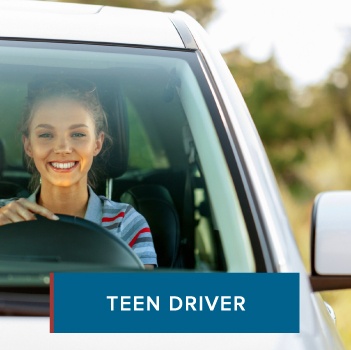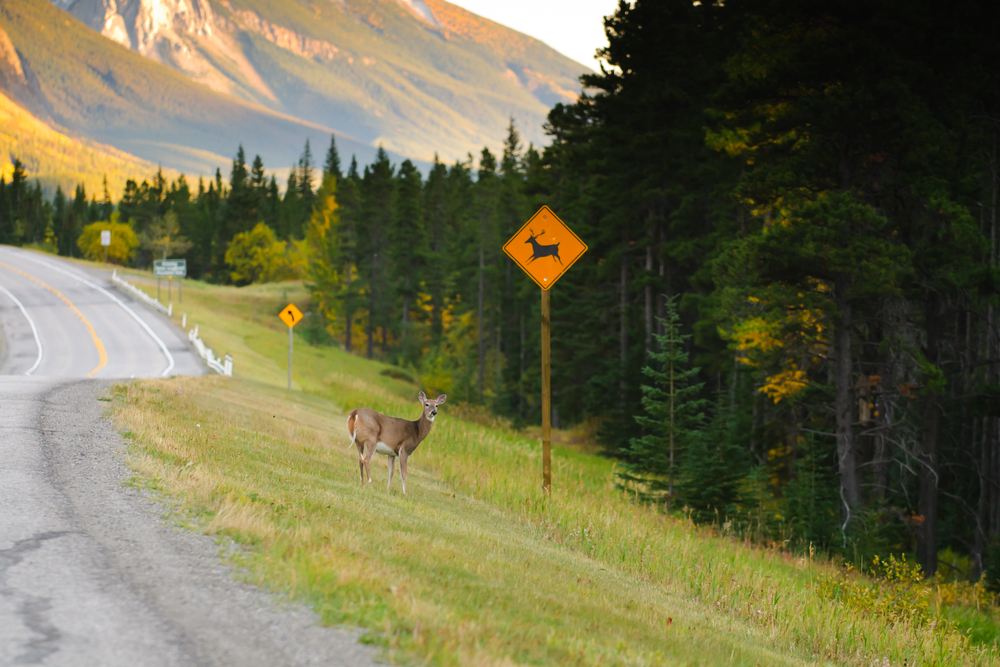Does My Insurance Cover Hitting A Deer?
If you've ever been up close to a deer before, you've had an exceptional opportunity to see one of life's most majestic creatures in action. Observing these beautiful animals in their natural habitat is equal parts calming and inspiring... unless you happen to be behind the wheel of a car at the time, that is.
As the deer population swells throughout the year, it's natural that the number of deer-related automobile accidents also increases. Thanks to the fact that deer can be a bit skittish (not to mention that they always eventually seem to wander into heavily populated areas where they're a danger to both themselves and residents), deer-related accidents tend to spike each fall. Unfortunately, you can't control the fact that deer often seem to move rapidly and without warning. What you can control, however, is your own reaction to seeing a deer in your path.
Sadly, there are times when that won't be enough and you may end up striking one of these animals. Because of that, you should take the time to learn about the relationship between deer accidents and car insurance. This is especially important if you drive through wooded or rural areas on a regular basis.
What Insurance Covers Hitting a Deer?
Generally speaking, there are two main types of insurance that will cover hitting a deer. The first is comprehensive coverage, which pays for damages that are caused by "events beyond your control." A deer strike would certainly fall under that category.
In order for comprehensive coverage to apply to this situation, however, your car must come into contact with the animal.
Collision coverage will also come to the rescue in this situation. Collision coverage pays for damages if you hit another vehicle, if you collide with an object or if you are overturned while swerving to avoid hitting a deer (or some other type of animal, for that matter).
Do You Have to Pay a Deductible if You Hit a Deer?
In the unfortunate event that you hit a deer, if you choose to file a comprehensive claim you will definitely have to pay a deductible. If you pay for the repairs to your car yourself, however, you won't have to worry about that.
The comprehensive coverage on your vehicle will pay for the actual cash value of your car after you pay your deductible. Therefore, if your deductible is higher than the cost to repair your car, your insurance will not cover the damage.
Does Liability Insurance Cover Hitting a Deer?
One of the most important things to understand about all of this is that you are NOT covered by liability insurance if you hit a deer.
Instead, your policy will cover you in the event that you are responsible for damage to another person's property, or if you hurt someone else. Hitting a deer, regardless of the circumstances, does not fall under either of these two categories.
Does Hitting a Deer Raise Your Insurance Rates?
 When you hit a deer while driving, the fact of the matter is that your car insurance rates will likely increase. Rates are set based on how "risky" you are determined to be as a driver and any type of damage to your vehicle will increase that risk level in the eyes of your insurance provider.
When you hit a deer while driving, the fact of the matter is that your car insurance rates will likely increase. Rates are set based on how "risky" you are determined to be as a driver and any type of damage to your vehicle will increase that risk level in the eyes of your insurance provider.
However, the good news is that those rates may not increase by much. While insurance companies will raise your rates after you make a claim for any type of damage, each insurer will evaluate claims differently. You would want to speak directly to your specific insurer for more information.
What to Do if You Hit a Deer: An Overview
1. Move your vehicle to the side of the road, away from the animal
If you ever hit a deer with your car, the first thing you should do is move your vehicle to the side of the road and away from the animal. Be quick to turn your car's hazard lights on so that other drivers can see you and remain seated until it is safe to exit.
2. Call the police
Then, you should call the police and let them know if the deer is blocking the side of the road. If the strike wasn't too bad, the animal may have already wandered off. If it is laying in the road, however, you need to let the police know that it could potentially be dangerous to oncoming drivers.
3. Stay clear of the deer or animal
More than anything else, steer clear of the deer as much as you can. Whenever a deer gets hit by a car, it will be frightened to the point where it could harm people - even inadvertently. The police will be able to safely handle the situation when they arrive on the scene.
4. When it's safe, document the accident
As soon as it is safe to do so, you should also begin to document the accident in as much detail as possible. Use your smartphone (if applicable) to take pictures of not just the road but also your surroundings. Photograph damages to your car and any injuries that you or your passengers may have sustained.
5. Contact your insurance company to file a claim
If another driver stops to help, be sure to document their account of the incident as well. They may have valuable details that could be important for your insurance claim later on. Take care to ask for their contact information, too. At that point, you can contact your insurance company to file a claim to pay for any damages.
6. Make sure your car is safe to drive
Finally, supposing that your car is safe to drive, you can leave the scene. Always look for things like leaking fluids, broken lights, or a hood that won't stay latched. Carefully examine your car from front to back before you get back out on the road again.
In the End
Overall, it's critical to understand that no matter where you live, incidents like deer strikes can happen. Therefore, it's important to have comprehensive coverage to make sure that you remain as protected as possible should this occur.
If you'd like to find out more information about whether or not your insurance will cover the unfortunate event of a deer-related auto accident, or if you'd just like to speak to someone about your own needs in a bit more detail, please don't hesitate to contact us today.




